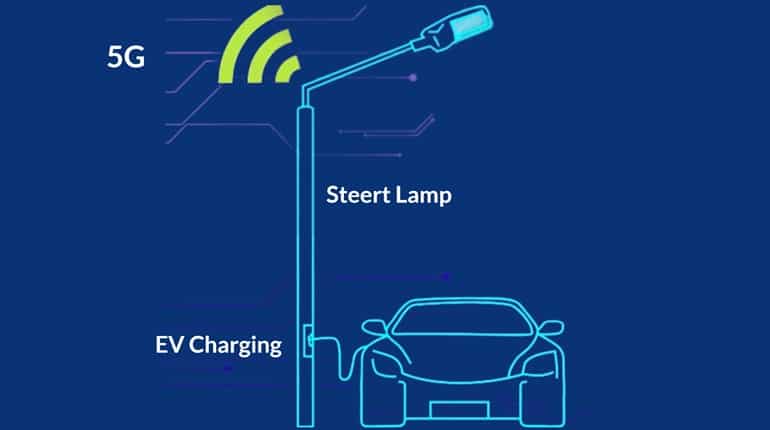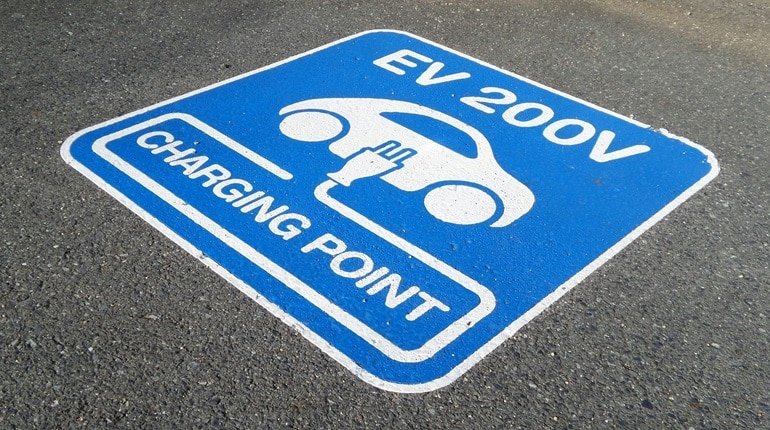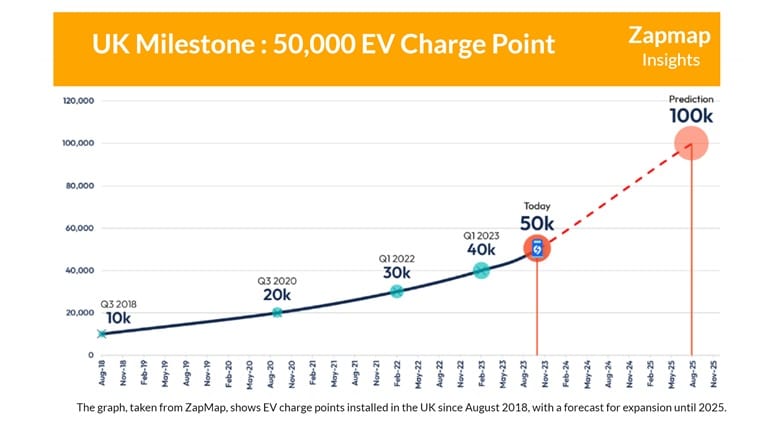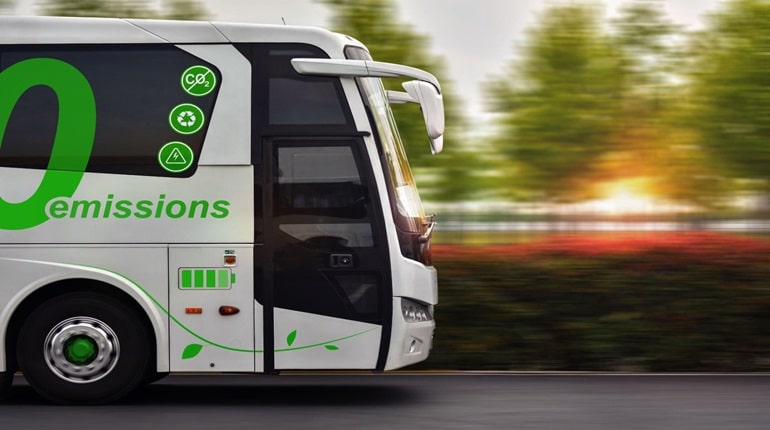1. UK Council trials smart street lamps equipped with 5G and EV chargers to boost EV charging

The UK government’s trial to boost the smart Infrastructure Pilots Programme (SIPP) is set to allocate £1.3 million in support of six regions nationwide. These areas will test “intelligent street lamps,” which will be retrofitted to accommodate Electric Vehicle (EV) charging stations while enhancing wireless connectivity, spanning broadband, mobile services, 5G, and free public WiFi technology.
This will result in a total investment exceeding £4 million to bolster local connectivity. The government’s contribution stands at £1.3 million, with an additional £2.7 million coming from local authorities.
Local Trial Authorities | Funding Amount |
Cambridgeshire County Council (East) | £220,000 |
Westminster City Council (London) | £165,000 |
North Ayrshire Council (Scotland) | £242,765 |
Tees Valley Combined Authority (North East) | £202,500 |
Oxfordshire County Council (South East) | £250,000 |
Royal Borough of Kingston upon Thames (London) | £245,700 |
The smart street lamps are set to serve a dual purpose, with 5G connectivity providing faster internet access and improved network capabilities, while the integrated EV chargers will support the growing demand for electric vehicle infrastructure.
This initiative represents a significant step towards the development of smart cities and aligns with the government’s commitment to advancing technology and sustainability in urban areas. By investing in innovative solutions that improve connectivity and promote EV adoption, the UK aims to foster economic growth and create cleaner, more connected communities.
2. The UK’s 50000th charging point installed in Weston-super-mare

The UK has reached a significant milestone by installing its 50,000th electric vehicle (EV) charging points.
Zapmap, the foremost charge point mapping service in the UK, recently announced that the United Kingdom has exceeded 50,000 electric vehicle (EV) charging points, and the 50,000th symbolic charging station was an ultra-fast unit that was installed at a service station located in Weston-super-Mare.
This milestone was achieved seven months after reaching the 40,000 mark. Data from Zapmap indicates the presence of over 50,000 public charging units nationwide.
What’s remarkable is that just in February 2023, the 40,000th EV charger was installed, showing a substantial acceleration in the deployment of EV charging infrastructure in the UK. To put this in perspective, it took an entire year to add the previous 10,000 chargers from February 2022 to February 2023.

This achievement is celebrated as a major step toward the country’s goal of having 300,000 charging points by 2030. Melanie Shufflebotham, the Chief Operating Officer at Zapmap, called this a crucial milestone, indicating a significant shift towards faster charge point installations.
Predictions suggest that by August 2025, there could be 100,000 chargers in the UK, which would be a remarkable accomplishment.
The UK has also seen a 68% increase in ultra-rapid charging stations since September 2022, further solidifying its path to reach 100,000 charging points by August 2025.
3. Government commits £129m for zero-emission buses to connect rural communities

The UK government is directing £129 million toward the deployment of hundreds of new zero-emission buses, with a particular focus on rural areas. Transport Secretary Mark Harper MP announced this initiative, emphasizing its role in connecting communities, facilitating access to work and education, and promoting UK manufacturing.
To ensure rural communities receive attention, the government is prioritizing the initial £25 million for areas where the infrastructure for these buses is costlier to establish.
The UK aims to introduce 4,000 zero-emission buses, ultimately decarbonizing the entire fleet. Transport Secretary Mark Harper also unveiled a £10 million research hub to develop low-carbon and resilient transport infrastructure solutions.
The UK is striving to expand its electric vehicle infrastructure, with fewer than 43,000 public charge points across the country, necessitating accelerated growth to achieve the 2030 phase-out of petrol and diesel vehicles.
The Zero Emission Bus Regional Areas (ZEBRA) 2 scheme is open for bids from all local authorities in England, with an emphasis on previously unfunded regions. Additionally, £10 million in funding is supporting the creation of the Net Zero Transport for a Resilient Future Hub, which will develop low-carbon and resilient transport infrastructure solutions.
4. Volvo to end diesel car production by early 2024
Volvo’s recent announcement to discontinue the production of diesel-powered models by early 2024 is a significant step in its ongoing commitment to sustainable and environmentally responsible mobility. The announcement was made at Climate Week NYC as part of its commitment to achieving climate neutrality by 2040.
Volvo’s strategy to go electric-only by 2030 is a key element of its broader goal to achieve climate neutrality by 2040. This ambitious plan involves a comprehensive shift away from fossil fuels and emphasizes the adoption of electric vehicles (EVs) as the future of transportation.
Notably, Volvo has already ceased the development of new combustion engines, signaling a clear pivot away from traditional internal combustion technology. By abandoning diesel production and focusing on EVs, the company aims to reduce its carbon emissions and minimize its environmental impact significantly.
This move by Volvo could inspire other manufacturers to accelerate their electrification targets. Additionally, the growing popularity of EVs in the UK, accounting for an anticipated 18% of new car sales by the end of the year, could be a driving factor behind this decision.
Volvo Car Group reported an operating profit of approximately £1.6 billion in the previous year, while their worldwide sales amounted to roughly 615,000 vehicles.
5. New rules to improve EV charging approved by MPs
New UK regulations aim to address variable pricing at public electric vehicle (EV) charging stations, particularly for rapid and ultra-rapid chargers. These rules will require providers to share data to help drivers locate available charge points and improve charging point discovery through apps, online maps, and in-vehicle software.
The UK recently surpassed 50,000 EV charging points, showing rapid deployment, with 40,000 added in just eight months.
The government aims for 300,000 public chargers by 2030. Decarbonisation minister Jesse Norman believes these regulations will enhance EV charging accessibility, transparency, and payment methods, supporting the transition to electric vehicles and climate goals.
A helpline will assist drivers with public road charging issues. Prime Minister Rishi Sunak’s decision to relax the 2030-2035 ban on petrol and diesel cars was met with concern from automakers, who are shifting towards EV production.
Electric Vehicle Association England’s CEO, James Court, sees these regulations as a major step forward for EV drivers, improving reliability, pricing clarity, and payment methods, making the UK a leading destination for EV charging. Despite UK drivers’ interest in EVs, the lack of charging infrastructure remains a hurdle, according to data from the Society of Motor Manufacturers and Traders.
6. £89 million of funding to develop cutting edge new electric vehicle projects
The UK has allocated £89 million to 20 cutting-edge net zero technology projects, reaffirming its position as a global leader in zero-emission vehicle technology.
The funding encompasses collaborative R&D initiatives, scale-up projects, and feasibility studies to advance large-scale manufacturing in the country.
Backed by the Advanced Propulsion Centre UK (APC), this initiative aims to establish a comprehensive supply chain for zero-emission vehicles (ZEVs) in the UK, with £45.2 million from the government and £42.7 million from the automotive industry.
These projects, including Aston Martin’s luxury EV platform and Perkins’ hydrogen-hybrid power system, are expected to generate over 4,700 jobs and reduce CO2 emissions by nearly 65 million tonnes over the next decade. An additional £11.3 million has been awarded to 12 UK-based projects, supporting scale-up readiness and feasibility studies in the automotive industry.
This funding promotes private investment and aligns with the government’s vision for a complete ZEV supply chain in the UK.
